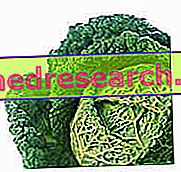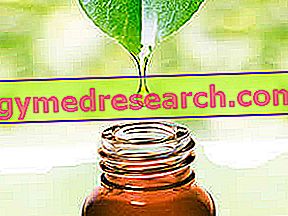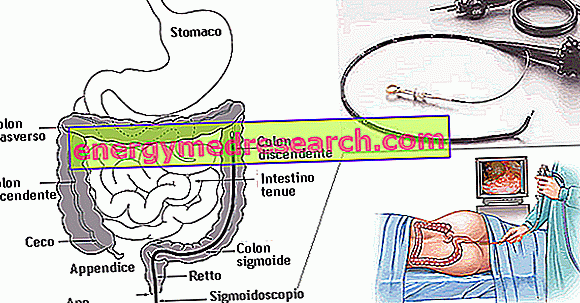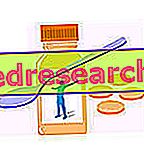Diet and Coumadin
During treatment with Coumadin, no food is strictly prohibited. However, it is important to pay close attention to the consumption of all those foods that can interfere with coagulation, reducing or amplifying the action of the drug.

The patient treated with coumadin must pay particular attention to his diet, never forgetting that he is particularly exposed to the risks of "do it yourself" or "do like me" dietary regimes, which for no reason must be undertaken.
Which foods to avoid
If adequately informed by the client, the prepared dieticians and nutritionists are well aware that foods rich in vitamin K hinder the anticoagulant effect of coumadin. This obviously does not apply to friends or magazines and generalist websites, whose advice - unless otherwise specified - does not take into account the therapy in progress.
The traditional dietary recommendations for subjects on coumadin therapy consist of careful limitation of the following foods:
- cabbage and parsley (to avoid or take in particularly modest quantities);
- broccoli, sprouts, cabbage, spinach, radicchio, turnip greens, sprouts, lettuce (avoid quantities over 100 grams);
- asparagus, peas, lentils, soybeans, other green salad, tomato, fennel, avocado, mustard, egg yolk, mayonnaise (avoid major changes in quantities).
NOTES: cooking tomato and fennel significantly decreases their vitamin K content.
Among the foods of animal origin particularly rich in vitamin K is the liver, which should therefore be replaced with other types of meat. Also to be avoided whole grains (pasta, rice, bran, polenta), while traditional ones do not create problems.
As for drinks, alcohol, caffeine, ginger, green tea and cranberry juice can interfere with the effectiveness of the drug. Attention, therefore, not only to coffee but also to drinks containing caffeine, such as cola type or Red Bull. Avoid spirits.
Important Recommendations
It is also important to take the drug on an empty stomach, away from meals. Otherwise, due to the interference of some substances contained in the food and the variability of the daily diet, the absorption of the coumadin can be irregular and produce "ups and downs" in the effect.
It is not necessary to deprive yourself of particular foods, but for some of them you need to keep your daily intake constant.
It is therefore more important to stabilize the intake of vitamin K with the diet, rather than "going crazy" to eliminate the main contributing foods.
The feeding must be regular for quality, quantity and time.
The foods listed above, for example, can be consumed in modest quantities every day, without ups and downs. Take this recommendation into account even when, for example, you go on vacation, because this is very often accompanied by the temporary variation in eating habits.
The foods to keep under control are above all vegetables.
You should not decrease or increase the vegetables, you simply need to consume a constant quantity .
More generally, every patient treated with coumadin should inform their doctor when they intend to vary significantly their diet or before starting or stopping taking various drugs and supplements (multivitamins, vitamin K, Glucosamine, Ginkgo Biloba, Ginseng, Coenzyme Q10, fish oil, green tea, pineapple stalk, garlic, flaxseed).
Coumadin intake »



